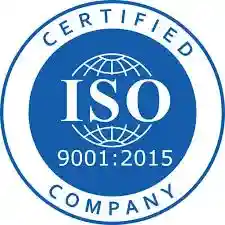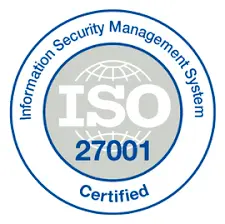HIPAA Compliance 101: Your Essential Checklist

Over time, the healthcare industry has gone through numerous changes. Various developments have transpired to improve overall healthcare delivery. One such development, i.e., HIPAA (Health Insurance Portability and Accountability Act), has been integral to safeguarding personal information and addressing the privacy concerns associated with sensitive records.
Why Was HIPAA Introduced?
Before HIPAA, it was common practice to identify and keep track of people who had contagious diseases. Officials used to release the names and addresses of families with tuberculosis or HIV patients. Individuals experienced a great deal of social and mental distress as a result of this. However, privacy advocates believed that such sensitive information should be kept private and not made public.
In the case of life-threatening diseases that can affect the entire community, such as COVID-19, it appears feasible to release such information for easy protection of others. However, in other matters, the information shouldn't pass from one hand to the other.
HIPAA compliance was introduced to protect the larger community from bias, stigma, and privacy concerns. According to it, all health associations must follow best practices to protect individuals' private health-related information. Other compliances exist in other parts of the world, just as HIPAA does in the United States. For example, Canada has PIPEDA, Australia has the Privacy Act, and the United Kingdom has separate policies decided by the NHS. Providers operating in the United States must comply with HIPAA.
Basic Requirements and Understanding of HIPAA Compliance
To better understand HIPAA compliance, it is necessary to first understand who the compliance is aimed at.
HIPAA compliance is aimed at organizations or associations that have direct contact with medical documents during their transfer, handling, circulation, and printing. This includes healthcare providers like doctors and hospital staff, associations that pay for insurance, industries that digitize documents for e-usage, and so on. These healthcare providers have access to sensitive and private patient information and must adhere to the basic practices and requirements outlined in HIPAA.
HIPAA Compliance Requirements
The three main rules of HIPAA compliance (among other things) are privacy rules, security rules, and breach notification rules.
- Privacy Rule
- Security Rule
- Breach Notification Rule
According to the privacy rule, every healthcare organization that is required to be HIPAA compliant must have a dedicated person or facility to oversee the points of compliance. The privacy rule must ensure that the individuals/firms for whom the documents are being cared for are aware that some information may be shared under certain conditions. The process of becoming compliant with the privacy rule must be transparent in every way.
All documents must be safeguarded using effective technologies, which fall under security procedures. Every organization must conduct a thorough risk assessment and develop valuable solutions in all areas where attacks are possible. Strict policies, rules and regulations, training, and procedures must all be in place to ensure a safe process. To be end-to-end compliant, businesses must invest in encryption, data security, physical asset security, user authentication, and other such touchpoints.
Under this rule, all companies must provide first-hand information to all entities if a data breach occurs. This can include the related authoritative body, affected individuals, and the general public. Companies must keep a record of all data breaches and devise a way to strengthen their internal systems to avoid such incidents in the future.
If a company fails to comply with HIPAA, the consequences include monetary penalties, reputational harm, loss of trust from stakeholders, and so on. Any HIPAA violation can result in a fine of more than $50,000, which can go up to a million dollars, depending on the severity of the case. The fines are divided into various tiers, with tier 1 being issued for lack of knowledge and tier 4 for sheer neglect.
HIPAA Compliance Essential Checklist
To become HIPAA compliant and protect the records, it is necessary to keep the following points in mind:
- Find all gaps in the current HIPAA compliance process by conducting regular audits of physical, technical, and administrative setups.
- Always have a dedicated officer in charge of all compliance nuances.
- Engage in regular risk assessment activities to gain a better understanding of the system. Determine the vulnerabilities and take corrective action.
- Adopt newer technologies, if available, to improve the security posture.
- To avoid being penalized, be knowledgeable about legal requirements and upcoming changes or updated government circulars.
- Ensure that the internal team receives extensive training so that everyone feels accountable and responsible for ensuring that the process and procedures are HIPAA compliant.
- Safeguard records and materials for future re-evaluation by internal or external parties as needed and required.
Conclusion
When it comes to HIPAA compliance, training is both mandatory and essential. Companies must address and re-address the training requirement considering changing procedures and new technologies. With the right LMS, all HIPAA compliance training modules can be safeguarded and assessed. We have developed a learning management system (GyrusAim) that is both secure and suitable for compliance training.
GyrusAim is an excellent choice for all HIPAA training and awareness programs because all documents are safely backed up in the depository. Schedule a demo to learn more about GyrusAim LMS and how it can help your organization's training needs.





-overview-(2022)-gyrus450.jpg)



